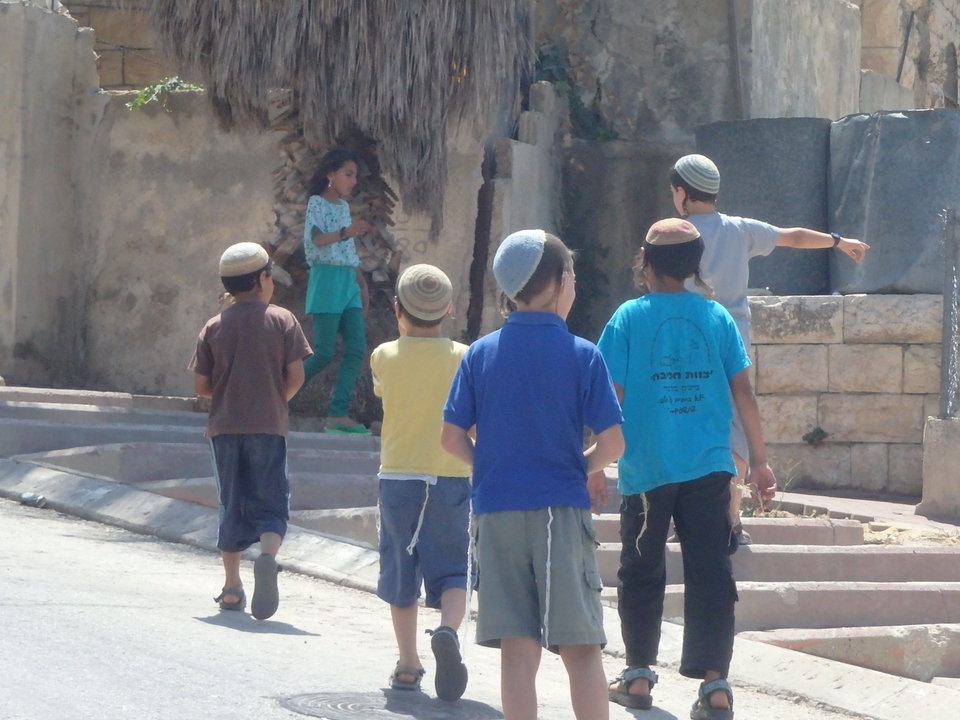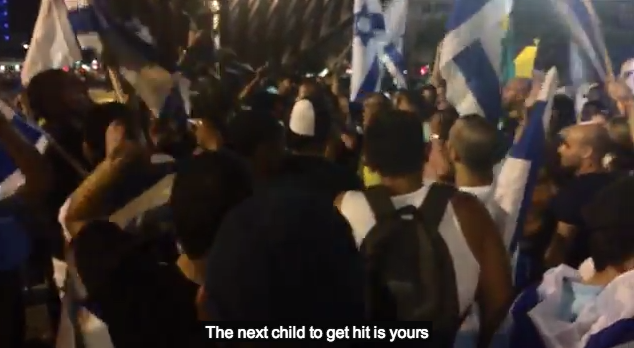Category: Video
-
Video: Israeli soldiers celebrate shooting an 18-year-old
12th August 2014 | International Solidarity Movement | Hebron, Occupied Palestine On August 9th in Hebron, Israeli soldiers celebrated shooting an 18-year-old Palestinian youth in the leg with live ammunition. The Canadian volunteer, Vern, who witnessed the soldier firing, stated, “After the soldiers left the roof, I went to confront them about why they had fired. One…
-
Video: Free the bubbles
30th July 2014 | International Solidarity Movement, Khalil team | Hebron, Occupied Palestine At approximately 1 pm on July 28th, international volunteers made giant bubbles with Palestinian children to celebrate Eid, in Tel Rumeida, al-Khalil (Hebron). Several settlers passed by in their cars and were visibly annoyed, and two stopped to complain to the Israeli soldiers…
-
Video: Israelis in Tel Aviv chanting, “There’s no school tomorrow, there’s no children left in Gaza! Oleh!”
29th July 2014 | International Solidarity Movement | Tel Aviv, Occupied Palestine Israelis in Tel Aviv, on 26.7.2014, the 19th day of Israel’s massacres in Gaza, cheer the genocide on: “There’s no school tomorrow, there’s no children left there [in Gaza]! Oleh!” Every evening, in Tel Aviv, right wing marchers flood the streets, waving Israeli flags…



